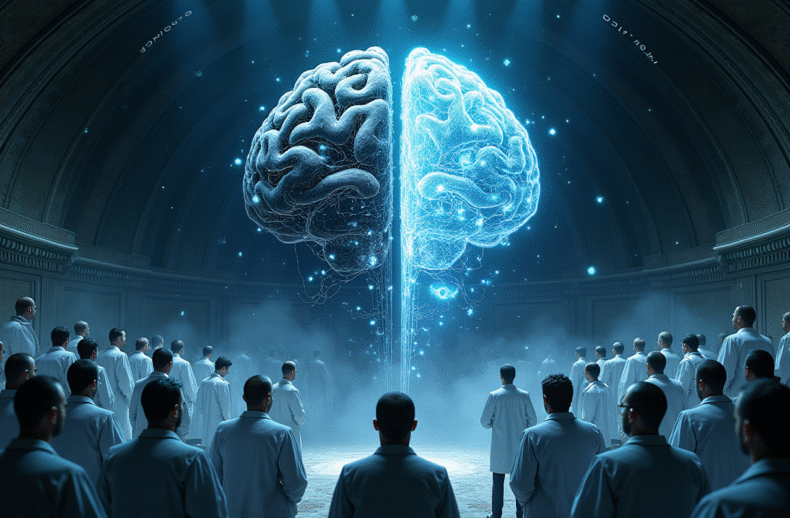The Demand for Recognition (DfR) proposes that the human brain’s fundamental learning and motivational drive arises from the need to gain and preserve recognition. Yet the concept itself triggers powerful resistance — both individually and collectively.
Like an immune system protecting the ego’s integrity, the mind instinctively rejects awareness of DfR because it reveals the hidden engine behind moral judgment, reasoning, and identity.
This self-defensive blindness extends into science, where recognition structures—peer review, citation, prestige—govern behavior while denying their emotional basis.
Paradoxically, the rejection of DfR by individuals and institutions confirms its validity: it behaves exactly as the theory predicts.
The theorist’s own awareness of DfR, and the doubt that this awareness might be narcissistic self-pleasure, represent the final loop of the mechanism—a recognition system recognizing itself.
Integrating DfR consciously does not destroy human autonomy; it redefines it as the capacity to navigate recognition rather than to deny it.


